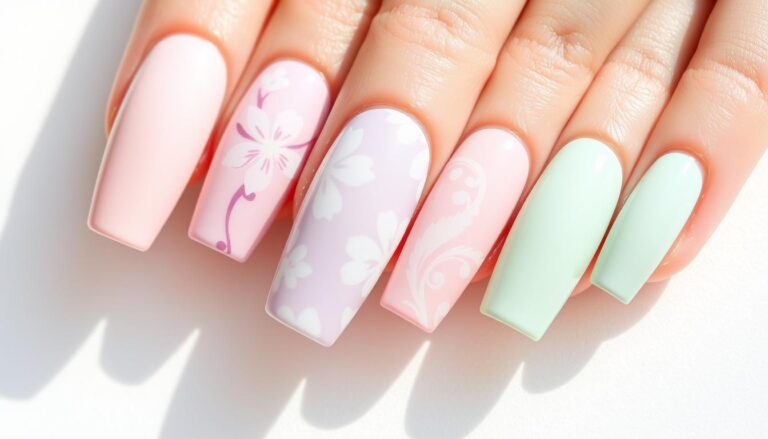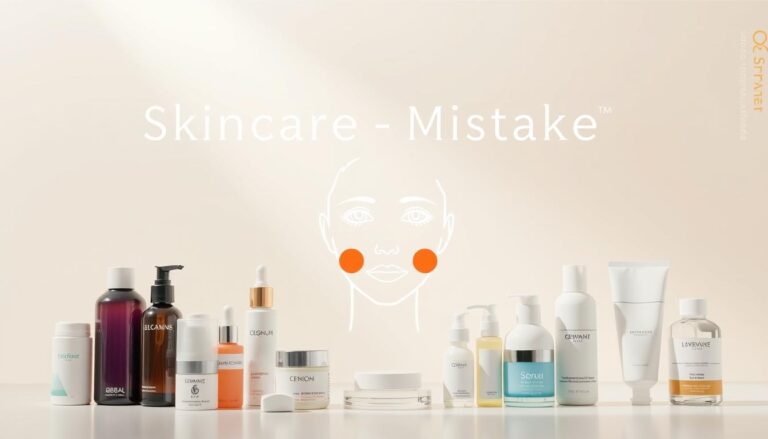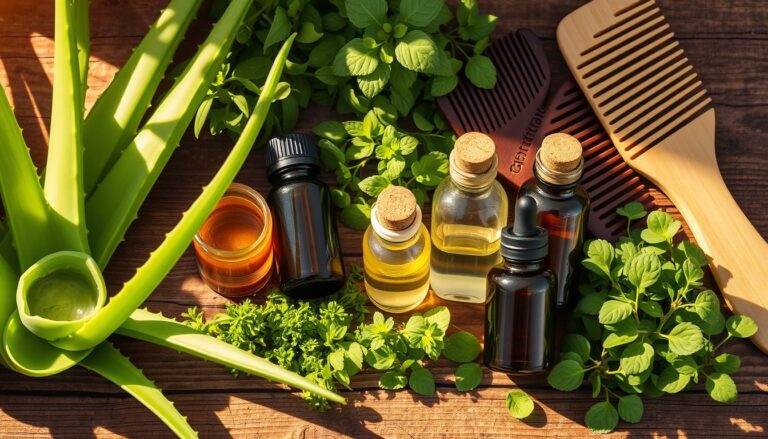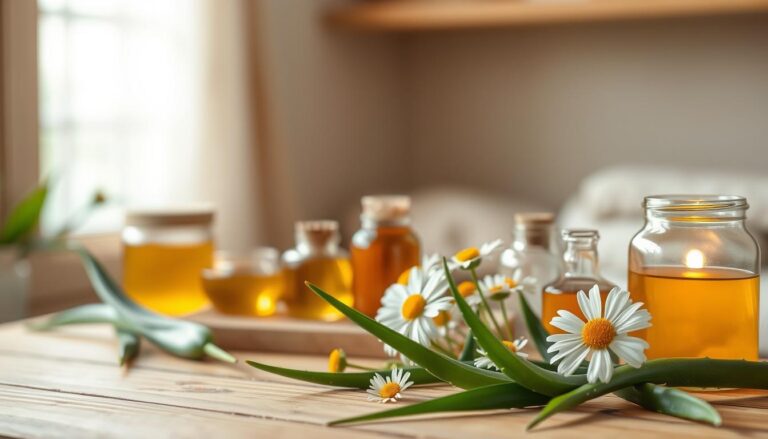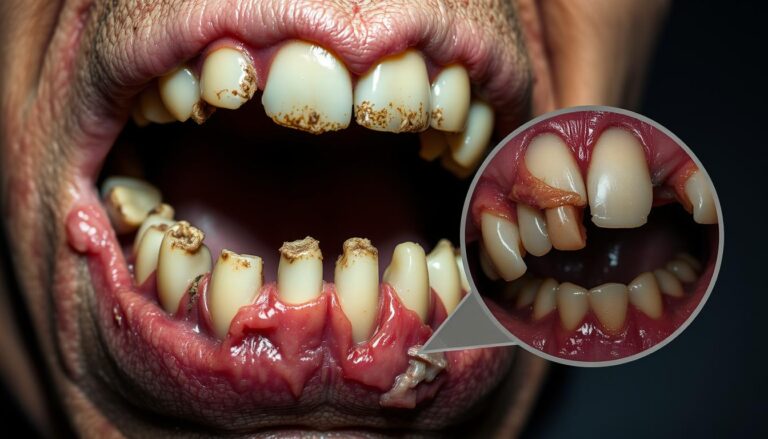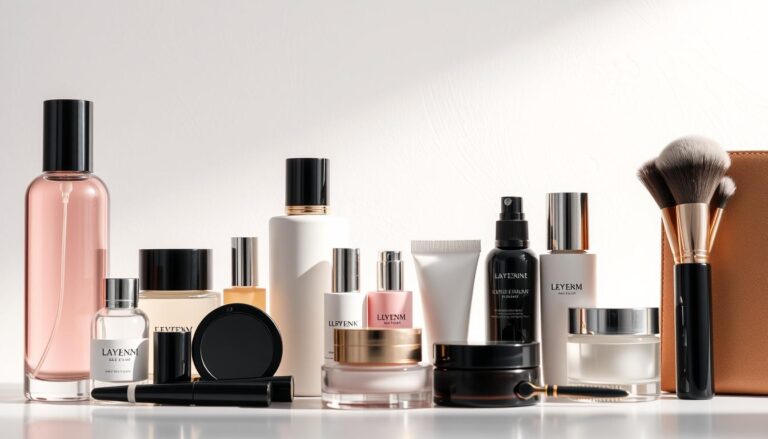Beauty Secrets: 10 Tips for Glowing Skin Every Day
Table of Contents
Ever looked in the mirror and wondered how to get that radiant glow? Your journey to stunning skin starts here. Beauty secrets aren’t just about expensive products. They’re about understanding and caring for your skin.
Achieving glowing skin is more than a cosmetic goal. It shows your health and self-care. These tips will change your routine, revealing your natural glow. We’ll cover daily care and targeted treatments for real results.
Imagine walking into a room with confidence, your skin looking fresh and vibrant. A comprehensive skincare approach combines science, nutrition, and personalized care. These beauty secrets will guide you to luminous skin, no matter your skin concerns.
Key Takeaways
- Daily sunscreen protection is crucial for preventing premature aging
- Hydration and nutrition play a significant role in skin health
- Consistent skincare routine yields the best results
- Stress management impacts skin appearance
- Personalized approach is key to achieving glowing skin
To maintain the safety and beauty of your mouth, you can use this nutritional supplement
Understanding Your Skin’s Natural Radiance
Your skin tells a story about your health and beauty. It’s the largest organ in the body, protecting you from the inside out. Knowing how your skin works is essential for keeping it young and glowing.
The Science of Skin Dynamics
Skin health is a mix of biology and function. It keeps harmful things out and keeps moisture in. Many things can affect how your skin looks, like:
- Sun exposure
- Diet
- Stress levels
- Sleep patterns
- Environmental pollution
Understanding Skin Types
Every person has a unique skin type. This determines what your skin needs and what it might struggle with. The main types are:
- Oily Skin: Makes too much oil
- Dry Skin: Needs lots of moisture
- Combination Skin: Has different needs in different areas
- Sensitive Skin: Gets easily upset
Factors Influencing Skin Health
Many things can change how your skin looks and feels:
- Hormonal changes can make skin sensitive
- Stress raises cortisol, causing inflammation
- Genetics shape your skin’s look
- What you eat affects your skin’s glow
By grasping these skin dynamics, you can create anti-aging plans that boost your skin’s natural glow.
Essential Daily Skincare Routine for Radiant Skin
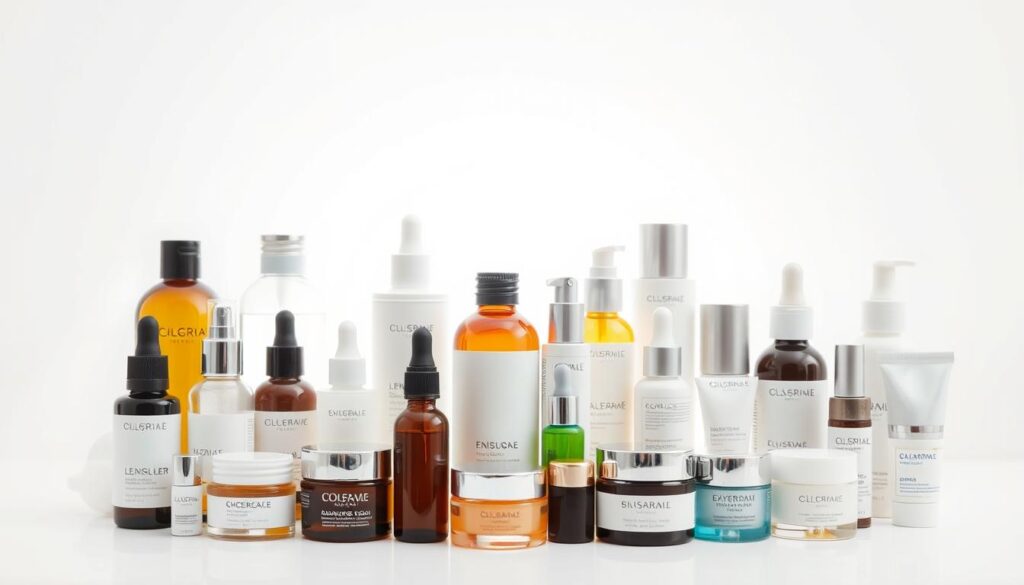
To get glowing skin, you need a daily skincare routine. Studies show 70% of dermatologists say it’s crucial. Your routine should fit your skin’s needs and keep it healthy.
Here’s a step-by-step guide to making a great skincare routine with natural products:
- Cleansing: Use gentle, natural cleansers to get rid of dirt. Double cleansing can remove up to 99% of makeup and pollution.
- Toning: Use alcohol-free, natural toners to balance your skin’s pH and get ready for more treatments.
- Serum Application: Apply targeted treatments like vitamin C serums. They can make your skin 30% brighter.
- Moisturizing: Use products with hyaluronic acid to keep your skin hydrated. 60% of users see better moisture levels.
- Sun Protection: Always use broad-spectrum sunscreen with SPF 30 or higher.
DIY beauty treatments can also help. Try making homemade masks with honey, avocado, or clay to boost your routine.
| Skin Type | Recommended Products | Key Ingredients |
|---|---|---|
| Dry Skin | Rich moisturizers | Hyaluronic acid, ceramides |
| Oily Skin | Lightweight, non-comedogenic products | Salicylic acid, niacinamide |
| Sensitive Skin | Fragrance-free, gentle formulations | Aloe vera, chamomile |
Consistency is important. 80% of people who stick to a skincare routine see better skin texture and tone. Tailor your routine and be patient with your skin’s changes.
Beauty Secrets: Ancient Remedies Meet Modern Solutions
Your skincare journey is a mix of old wisdom and new science. Beauty trends have changed a lot. They now link ancient healing with modern innovations that change how we care for our skin.
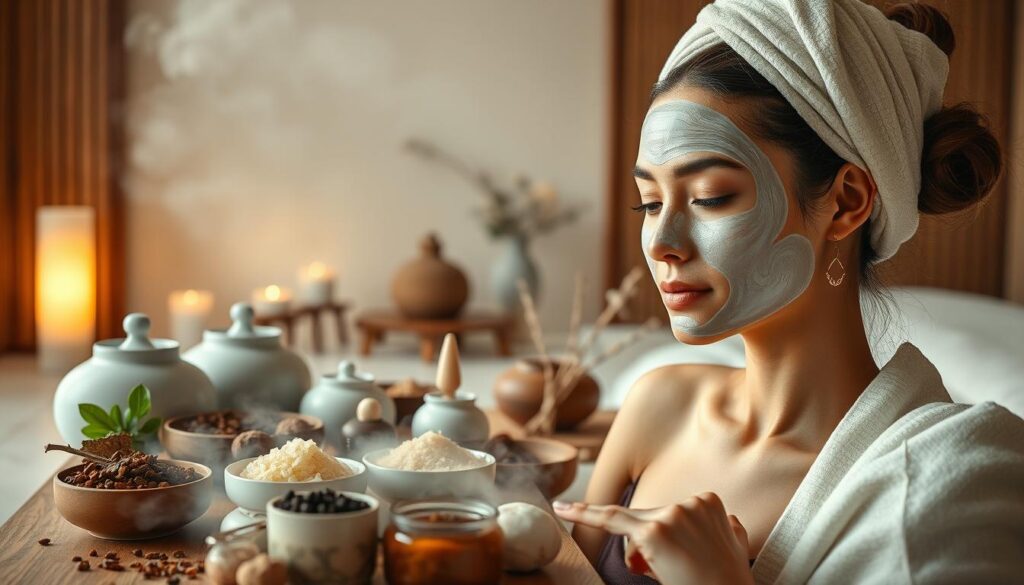
The history of skincare is full of natural healing secrets. The ancient Egyptians used olive oil for beauty. It’s packed with antioxidants, making it great for the skin.
Traditional Beauty Practices
Cultures all over the world have their own skincare traditions. Here are a few:
- Ayurvedic medicine from India focuses on overall skin health
- Egyptian beauty uses natural plant extracts
- Chinese herbal treatments target specific skin issues
Contemporary Skincare Innovations
Now, celebrities use advanced tech in their beauty routines. New discoveries in dermatology have changed how we treat our skin. They use science to create specific treatments.
Combining Old and New Approaches
The best skincare mixes old remedies with new science. For example, olive oil’s antioxidants work well with modern anti-aging products.
The future of skincare is in blending ancient wisdom with modern science.
By using both old and new methods, you can create a skincare routine that makes your skin glow and stay healthy.
Nutrition and Hydration for Skin Health
Your skin’s glow comes from inside. Wellness for beauty is more than a phrase. It’s about feeding your body’s biggest organ well through good food and water.
Dermatologists say diet is key for glowing skin. What you eat affects your skin’s health. It impacts cell growth and reduces inflammation.
“What you eat reflects on your skin” – Skin Health Experts
Essential Nutrients for Radiant Skin
- Vitamin A: Helps cells grow (found in sweet potatoes and carrots)
- Vitamin C: Important for collagen (one orange has 78% of what you need)
- Omega-3 Fatty Acids: Lower skin inflammation by up to 30%
- Antioxidants: Fight off aging and stress
Water-rich foods like cucumbers, watermelon, and strawberries are great for skin. They have over 90% water, keeping your skin moist.
Hydration Strategies
Drinking enough water is key for beauty. Experts say drink at least 8 glasses (64 ounces) a day. It helps remove toxins, keeps skin flexible, and boosts skin health.
Pro Tip: Eat whole foods and cut down on processed sugars. You might see a 15% better skin texture and look.
Foods to Embrace and Avoid
| Skin-Friendly Foods | Foods to Limit |
|---|---|
| Blueberries | Refined Sugars |
| Salmon | Processed Foods |
| Leafy Greens | Excessive Dairy |
Your skin’s health shows your overall wellness. By choosing the right foods, you can make your skin glow naturally.
Professional Treatments and At-Home Care
Getting radiant skin needs a mix of professional treatments and home care. Knowing when to use both can really boost your skincare routine.
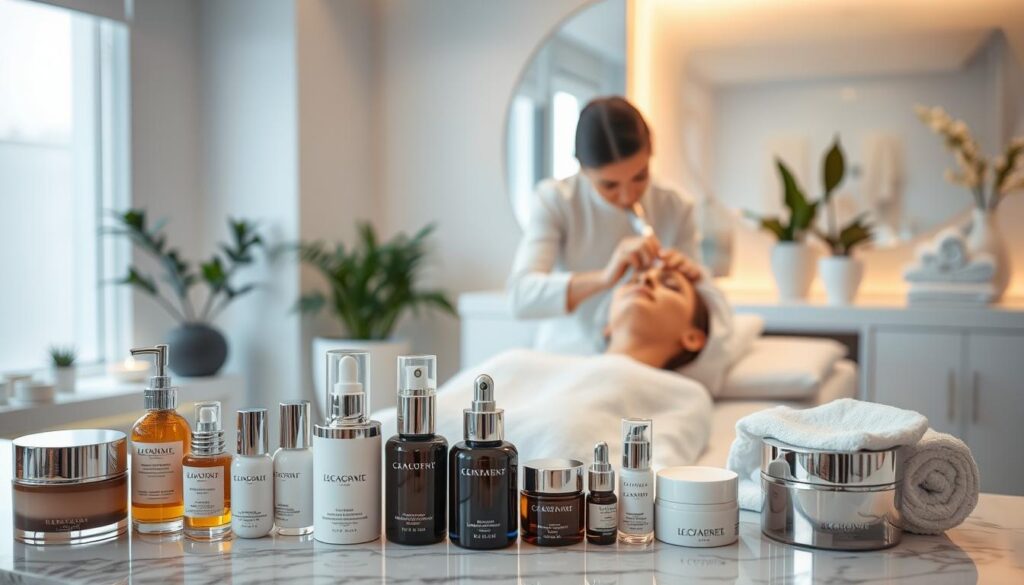
Dermatologist-Recommended Procedures
Professional facials can change your skin for the better. They offer benefits that regular products can’t. Treatments like glycolic peels can:
- Shrink pores
- Even out skin tone
- Smooth out texture
DIY Beauty Treatments
Home remedies and makeup tricks can add to what pros do. You can make your own skincare with kitchen items. Try these simple recipes:
- Matcha and honey mask
- Ground oats with Greek yogurt scrub
- Lymphatic facial massage
When to Seek Professional Help
It’s important to know when to see a dermatologist. If you have:
- Long-lasting skin issues
- Unusual skin changes
- Signs of skin damage
| Treatment Type | Frequency | Benefits |
|---|---|---|
| Professional Facial | Once per month | Boosts circulation, deep cleans |
| Dermaplaning | Every 3-4 weeks | Removes dead skin, reduces fuzz |
| LED Light Therapy | Bi-weekly | Lessens inflammation, aids healing |
Remember, consistent care and professional advice are vital for great skin. Take care of your skin with a mix of professional treatments and smart home care.
Environmental Protection and Skin Defense
Keeping your skin safe from environmental stressors is key to a healthy glow. City life exposes your skin to many dangers that can speed up aging and harm your natural beauty.
City air pollution is a big threat to your skin’s health. Studies reveal pollution can create free radicals that harm collagen and elastin, causing early aging. Natural beauty products rich in antioxidants can fight these effects, protecting your skin from harm.
- UV radiation breaks down skin fibers, increasing skin cancer risk by 90%
- Pollution can cause up to 40% moisture loss in skin barriers
- Antioxidants can reduce oxidative stress by up to 50%
Good anti-aging starts with protecting your skin from the environment. Always use sunscreen with a broad-spectrum SPF 30 or higher. Your skin needs constant protection, no matter the weather.
Here are more ways to protect your skin:
- Wear protective clothing and accessories
- Use barrier creams with ceramides
- Incorporate antioxidant serums like Vitamin C
- Exfoliate 2-3 times weekly to remove pollutant buildup
People living in cities need a strong pollution defense skincare plan. Natural products with niacinamide, ceramides, and peptides can strengthen your skin’s barrier by up to 30%. This gives your skin strong defense against outside threats.
Lifestyle Factors Affecting Skin Appearance
Your daily habits are key to keeping your skin healthy and glowing. Beauty isn’t just about skincare products. It’s also about how your lifestyle affects your skin’s health and look.
Skin health is tied to your daily routines and habits. Knowing these connections helps you create better hair care and wellness plans.
Sleep and Stress Management
Good sleep is essential for skin repair. While you sleep, your body fixes damaged cells and makes new ones. Stress can make your skin produce more oil, leading to acne and other problems.
- Aim for 7-9 hours of sleep nightly
- Practice stress-reduction techniques like meditation
- Establish a consistent sleep schedule
Exercise Benefits for Skin
Regular exercise boosts circulation, giving you a natural glow. Exercise helps flush toxins, delivers oxygen to skin cells, and supports overall wellness for beauty.
- Engage in moderate exercise 30 minutes daily
- Stay hydrated during workouts
- Cleanse skin after sweating
Harmful Habits to Avoid
Some lifestyle choices harm your skin. Smoking, too much alcohol, and bad diets can age your skin faster and damage it.
- Quit smoking
- Limit alcohol intake
- Reduce processed food consumption
- Protect skin from excessive sun exposure
Your skin reflects your overall health—nurture it with mindful lifestyle choices.
Natural and Chemical-Free Approaches
More and more people are choosing natural beauty products for their skin. About 70% of consumers now prefer products that are good for the planet and safe for their skin. This is because they want to avoid harsh chemicals.
DIY beauty treatments let you control what goes on your skin. Ingredients like aloe vera, coconut oil, and honey are great for your skin. Coconut oil is in 75% of homemade skincare recipes. Honey’s antibacterial properties make it a key ingredient in 40% of natural skincare.
Switching to natural skincare can really improve your skin. About 90% of people see better skin health in just three months. Natural ingredients have up to 30% more antioxidants than synthetic ones, helping your skin glow.
Choosing natural beauty products means avoiding harmful chemicals. Look for products without parabens, phthalates, and sulfates. Apps like Clearya and the EWG Skincare Database can help you find safe ingredients. Start your journey to healthier skin by knowing what you’re using and making smart choices.
FAQ
How long does it take to see results from a new skincare routine?
You might see your skin improve in 4-6 weeks with a new routine. But, bigger changes take 2-3 months. Remember, patience and sticking to your routine are key for glowing skin.
What are the most important steps in a daily skincare routine?
The key steps are cleansing, toning, moisturizing, and sun protection. Cleansing gets rid of dirt, toning balances your skin, moisturizing keeps it hydrated, and sunscreen protects from UV rays. Choose these steps based on your skin type for the best results.
Can diet really impact my skin’s appearance?
Yes, it does! Eating foods full of antioxidants, omega-3s, and vitamins A, C, and E can make your skin glow. Drinking water also helps keep your skin healthy and plump.
How can I protect my skin from environmental damage?
Use sunscreen every day, even on cloudy days. Antioxidant serums can fight pollution. Wear protective clothes, stay in the shade, and use skincare with niacinamide and vitamin C to protect your skin.
Are natural skincare products always better?
Not always. Natural products can be good, but they’re not always better than synthetic ones. Look for products that fit your skin type and needs. Some natural ingredients can irritate, while some synthetic ones are proven safe and effective.
How often should I exfoliate my skin?
It depends on your skin type. Most people should exfoliate 1-2 times a week. Sensitive skin might need less, oily skin a bit more. Always listen to your skin and avoid over-exfoliating.
What’s the best way to address signs of aging?
Fighting aging signs needs a few steps. Use sunscreen, add retinol or vitamin C serums, stay hydrated, and eat well. Get enough sleep and manage stress. A dermatologist can also help with personalized treatments.
How can I manage combination or oily skin?
For oily or combination skin, use gentle, oil-free products. Keep your routine simple with a gentle cleanser, light moisturizer, and sunscreen. Salicylic acid or niacinamide can help control oil. Use a clay mask once a week to control shine and pores.
Can stress really affect my skin?
Yes, stress can harm your skin. It can cause breakouts, increase inflammation, and speed up aging. Try meditation, exercise, enough sleep, and skincare with calming ingredients like chamomile and green tea to manage stress.
What are the most important nutrients for skin health?
Key nutrients include vitamin C for collagen, vitamin E for antioxidants, omega-3s for inflammation, zinc for healing, and vitamin A for cell turnover. Foods like fish, nuts, berries, leafy greens, and citrus fruits are great for healthy skin.


